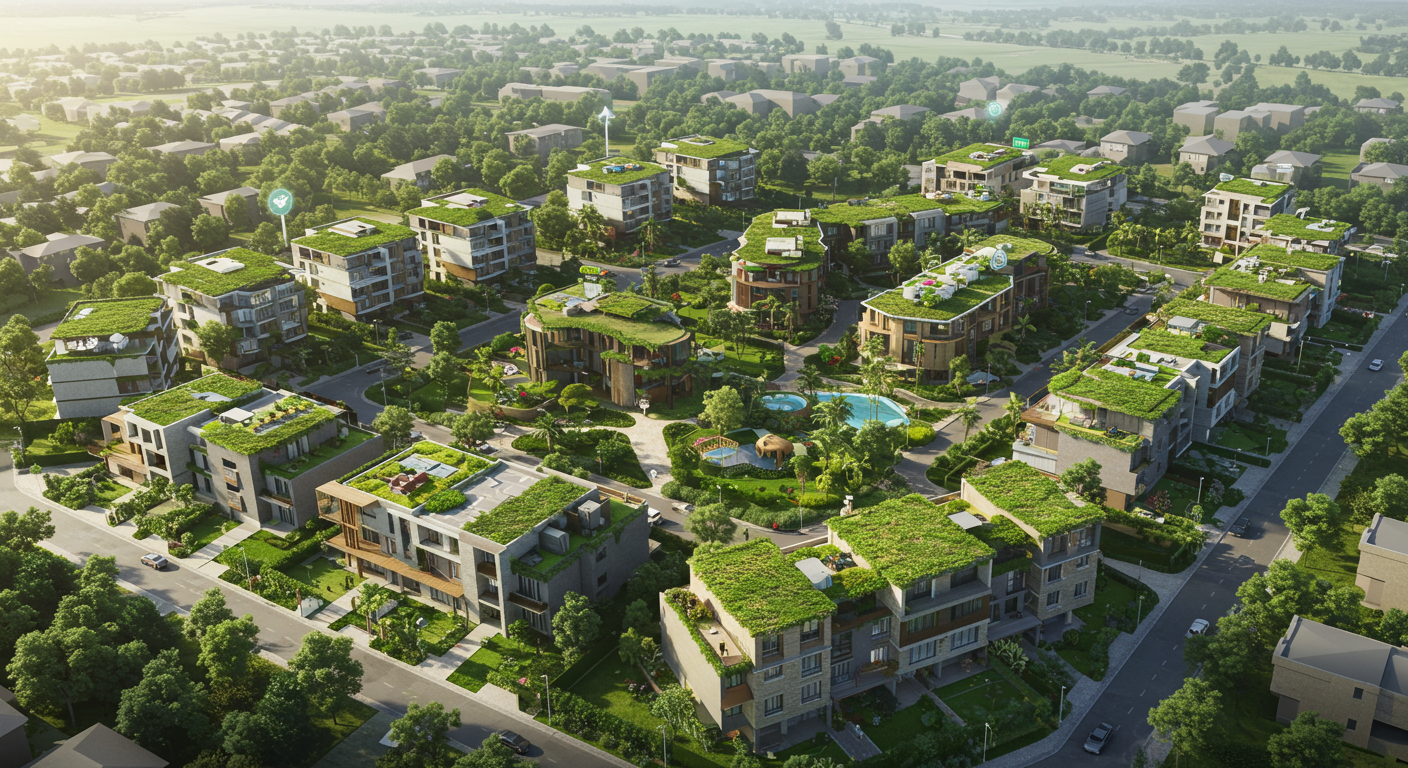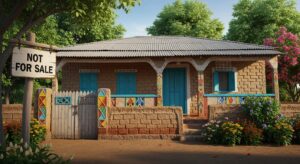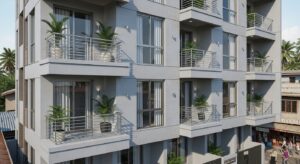Ghana is one of the fastest-growing economies in West Africa, with a dynamic urban population, a rising middle class, and a stable political environment. However, despite this progress, the country faces a critical housing crisis — one that presents not only a social challenge but also a compelling investment opportunity, particularly for the African diaspora and forward-thinking developers.
In this article, we explore the scope of Ghana’s housing deficit, its underlying causes, and how investors can actively participate in bridging the gap — while generating strong financial returns.
The Scale of Ghana’s Housing Deficit: A Market Gap Worth Billions
According to the Ministry of Works and Housing, Ghana has an estimated housing deficit of 1.8 million units as of 2024. Urban migration, population growth, and underinvestment in affordable housing have contributed to this growing shortfall.
Key Facts:
- Ghana’s population is projected to reach 40 million by 2050, with over 70% expected to live in urban areas.
- The housing deficit grows by an estimated 100,000 units each year, while only 40,000–50,000 new units are being built annually.
- The estimated cost to close the gap exceeds $30 billion, based on an average unit cost of $15,000–$25,000 per household.
This deficit is not just a number — it’s a massive supply-demand imbalance that underscores the urgent need for targeted investments across all housing segments: affordable, mid-income, and premium.
What’s Driving the Housing Crisis in Ghana?
Several structural and market-based issues contribute to Ghana’s persistent housing shortage:
1. Rapid Urbanization
Cities like Accra, Kumasi, and Takoradi are absorbing thousands of new residents monthly due to rural-urban migration and economic centralization. Yet, infrastructure and housing development haven’t kept pace.
2. High Cost of Construction
Import-dependent building materials, limited local manufacturing, and inflation have pushed construction costs up by more than 30% over the past five years. This makes it difficult for developers to offer affordable housing units at scale.
3. Limited Access to Affordable Mortgages
Although Ghana has a growing mortgage market, the average interest rate still ranges between 22% and 28% annually, making home ownership unaffordable for most middle-income Ghanaians.
4. Land Tenure and Bureaucracy
The complexity of Ghana’s land acquisition system — including chieftaincy disputes, lack of digital land records, and multiple claims on the same parcel — delays projects and deters private investment.
Where the Investment Opportunity Lies
Despite the challenges, Ghana’s housing deficit presents a multi-billion-dollar opportunity for developers, institutional investors, and diaspora entrepreneurs willing to take a long-term, strategic approach.
1. Affordable Housing
The government’s National Affordable Housing Program, launched in partnership with private developers, aims to build 300,000 units over the next decade. Investors can tap into this demand by:
- Partnering with government-backed programs
- Leveraging tax incentives and access to state land
- Investing in prefab construction for cost efficiency
2. Mid-Income Market Growth
The rising middle class in Ghana, particularly in Greater Accra and Ashanti Region, is fueling demand for well-designed, secure homes priced between $45,000 and $80,000. Diaspora buyers are also actively seeking these types of homes — whether to live in, retire to, or rent out.
3. Build-to-Rent (BTR) and Rental Yields
With the mortgage market still out of reach for most locals, rental demand is surging. In Accra, rental yields range from 8% to 12% annually, particularly in well-managed developments near commercial hubs.
4. Diaspora-Led Real Estate Development
The diaspora sent over $4.7 billion in remittances to Ghana in 2023, and a significant portion is being channeled into real estate. The demand for end-to-end project management, verified land, and construction oversight creates an entire ecosystem ripe for innovation — and impact.
Case Study: Land Appreciation in Urban Peripheries
In the past five years:
- Land in East Legon Hills appreciated from $40,000 per plot in 2018 to over $75,000 in 2024.
- Plots in Pokuase, once considered fringe, now sell for over $25,000 due to new roads and real estate developments.
- Areas like Oyibi, Amasaman, and Prampram are experiencing annual growth rates of 10–15%, driven by both local and diaspora demand.
These data points highlight that buying early in emerging zones not only helps address housing gaps but also positions investors for strong capital gains.
The Role of Diaspora Investors
The African diaspora plays a vital role in Ghana’s real estate future. Not only do diaspora investors bring capital, but they also bring global standards, accountability, and long-term vision. Their investment isn’t just economic — it’s personal.
At DPN Global, we help diaspora clients:
- Secure verified land
- Partner with trusted developers
- Navigate construction or off-plan purchases remotely
- Ensure legal and documentation compliance
We believe that the diaspora is not just funding real estate — they are shaping Ghana’s urban narrative.
Conclusion: From Deficit to Opportunity
Ghana’s housing crisis is a challenge — but within it lies the opportunity to transform communities, stimulate the economy, and generate meaningful returns. For those ready to act, now is the time to invest in sustainable, scalable real estate solutions that meet the needs of a growing nation.
Whether you’re a developer, diaspora investor, or financial partner — the question isn’t whether there’s opportunity in Ghana’s housing market.
The real question is: how will you take part in building the future?
📩 Work With DPN Global
We help investors — especially members of the diaspora — capitalize on Ghana’s housing opportunity through verified land, trusted development partners, and full-service support.







